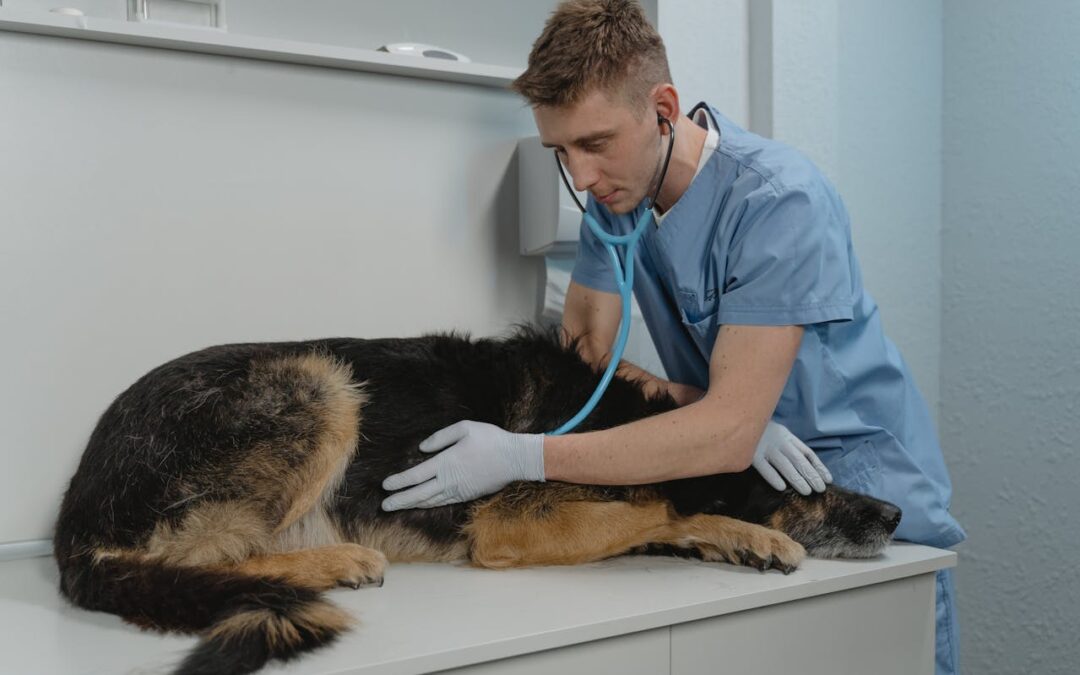🐾 How to Choose the Right IT Provider for a Veterinary Practice
By Hurricane Technologies — Serving Rochester-area veterinary clinics since 2002
💡 Why This Matters
Your veterinary clinic runs on technology — practice-management software, digital X-rays, payment systems, and client communication tools. When any of it goes down, so does your ability to care for patients and serve clients. Choosing the right IT partner isn’t just a technical decision; it’s a medical-business decision.
1️⃣ Understand What’s at Stake
Downtime in a vet clinic isn’t just inconvenient — it can delay patient care, lose medical records, and hurt your reputation.
Ask every potential IT provider:
- “What’s your guaranteed response time for emergencies?”
- “How do you protect our client and patient data?”
- “Do you understand veterinary-specific systems like AVImark, Cornerstone, or ezyVet?”
A good MSP should answer confidently and share examples.
2️⃣ Look for Veterinary Experience — Not Generic IT
Any MSP can fix a printer, but only a few understand the unique flow of a veterinary environment: front-desk scheduling, treatment-room computers, imaging integration, and secure client communications.
What to ask:
“Tell me about another veterinary or medical client you’ve supported — what challenges did they face and how did you solve them?”
Pro tip: Ask for references from other clinics, not generic small businesses.
3️⃣ Verify Compliance & Security Knowledge
Veterinary clinics handle sensitive client and payment data, and often fall under HIPAA-adjacent or PCI compliance requirements.
Your MSP should:
- Offer written data-handling policies
- Provide encryption and multi-factor authentication setup
- Run regular vulnerability scans
- Document every security update
If an IT provider can’t describe their security stack in plain English, that’s a red flag.
4️⃣ Insist on Proactive Support, Not Break/Fix
Many clinics still pay hourly for reactive IT help — but that model keeps you in constant catch-up mode.
A managed service plan should include:
- 24/7 monitoring of workstations and servers
- Patch management and antivirus updates
- Scheduled maintenance windows
- Quarterly technology reviews with your office manager or practice owner
Look for language like “we prevent problems before they happen.”
5️⃣ Ask for Transparent Pricing and Terms
Avoid vague “custom quotes” that make it hard to compare providers. You deserve clear, tiered pricing based on devices, staff size, or services covered.
Also confirm:
- No surprise after-hours fees
- Clear termination policy (no long-term lock-in)
- Hardware procurement mark-ups disclosed
At Hurricane Technologies, for example, we publish baseline pricing ranges and never charge for after-hours emergencies under a managed plan.
6️⃣ Evaluate Their Communication Style
When your X-ray PC freezes mid-exam, you need a calm, responsive partner — not an anonymous ticket system.
During your initial calls, note:
- Do they answer promptly and explain things clearly?
- Are they local enough to be onsite quickly if needed?
- Do they assign a dedicated technician who knows your environment?
Great IT support feels like part of your clinic team — not an outsourced vendor.
🧭 Quick Checklist: “Is This MSP a Good Fit?”
| Question | Why It Matters |
|---|---|
| Do they have other veterinary or medical clients? | Real-world experience reduces onboarding mistakes |
| Can they quote response times in minutes, not hours? | Speed saves appointments |
| Do they offer data-protection documentation? | Proves compliance awareness |
| Will they train your staff on phishing & security basics? | Reduces human error |
| Do they speak plainly? | Tech talk should build trust, not confusion |
✅ Final Thoughts
The best IT provider for your veterinary practice is one who understands your world, protects your data like it’s their own, and keeps your clinic running without interruptions.
If you’d like a free 15-minute consultation on how to align your technology with patient care, schedule a call here.

